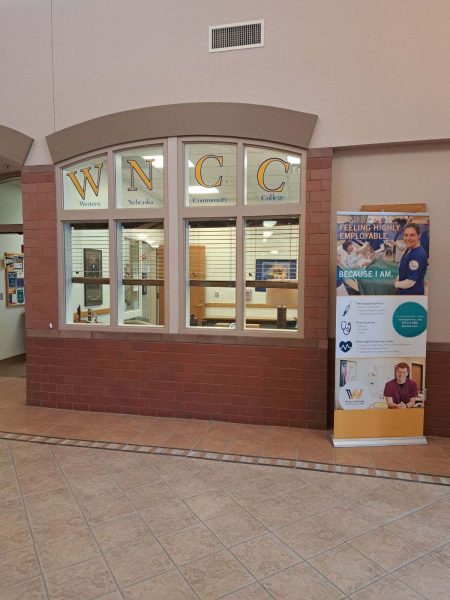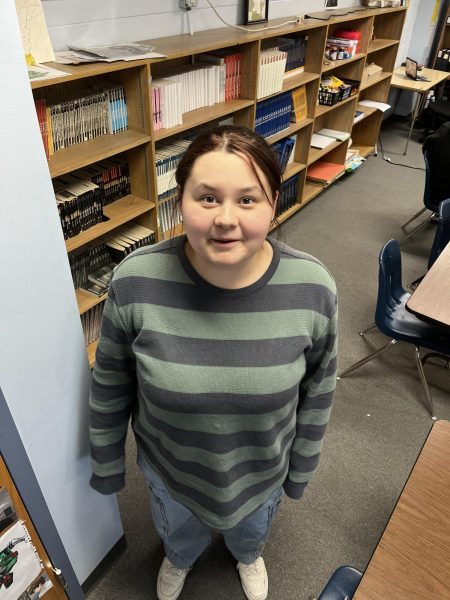BBGH’s Preparation for COVID-19
The pandemic that the world is currently facing is impacting everyone in various ways. There have been 661,712 confirmed COVID-19 cases as of April 17 in the United States. 1,066 of these were in Nebraska. There have been 34 test collections for the virus done at Box Butte General Hospital, only one of which was positive.
Box Butte General Hospital is unable to run the tests for COVID-19 at this time, so they have to send the specimen to the Nebraska Public Health Laboratory. Laboratory manager Angie Valdez stated, “We will eventually test it here. We are not a hotspot, meaning we don’t have a lot of positives, which makes it hard to get supplies for testings.” She went on to say how the majority of the supplies are getting sent to states that are hotspots such as New York.
Although they cannot currently run the tests, nurses are able to collect the specimen at BBGH. If someone has COVID-19 symptoms and suspects that they have the virus, then they can call the hospital to determine if they need to be tested. If it is decided that they need to be tested, they will be instructed a time to come to the back of the hospital by the ambulance bay where hospital staff will bring them in. A nasopharyngeal swab is then collected by nurses and sent to be tested. The patient will be notified of the results.
While most patients who get COVID-19 do not need to be hospitalized, BBGH is prepared if someone in the community does need to be. A COVID Unit has been set up in the PACU, or Post-anesthesia care unit, of surgery. This unit has negative pressure and a air filter system. Courtney Schnell, who works in surgery, remarked, “We put up containments, or plastic walls. If we were to have an emergency come in we wouldn’t expose other patients because of where it is.” The COVID Unit is similar to ICU, with crash carts, IV fluids, oxygen and ventilators available. Schnell said, “Nurses have been trained on how to use ventilators and where to don and doff [Personal Protective Equipment.]” Donning and doffing is putting on and taking off Personal Protective Equipment properly. Mary Mockerman, Chief Quality Officer of the hospital explained that a specific team would be assigned to take care of this patient. The PPE, or Personal Protective Equipment, needed to enter this room include an N95 respirator, face shield, gown and gloves.
The coronavirus outbreak has resulted in the workload at the hospital in various different departments decreasing or almost completely stopping for some. Schnell explained, “We have canceled all elective surgeries. Our caseload went from a whole bunch to none.” Valdez said that while their workload has significantly decreased, they still have inpatients and outpatients that they take care of. Liz Jensen, who works in the clinic, asserted that their workload has reduced greatly. She went on to explain, “Once we decided to see well patients in the morning and sicker patients in the afternoon business picked up, but it is not even near as close to being as busy as usual.” Mockerman remarked, “It has had a pretty dramatic impact on our day to day income because we’ve really reduced all of the nonessential care. There has really been a trickle-down effect.”
A new policy has been put in place at BBGH requiring all employees to wear a mask while they are at work. Jensen explained, “this protects us from you and protects you from us.” There is an allotted number of masks delivered to the hospital frequently, and because there has been such a high increase in the number of masks needed nationwide, BBGH is not able to receive more from the vendors they purchase from. Many people have begun to donate handmade cloth masks to the hospital that aredistributed to employees for use. When asked if they could run out of masks for employees, Mockerman stated, “There will be enough [Personal Protective Equipment] if we are conservative.”
Because there are numerous employees, such as those working at the wellness center of the hospital and in surgery, who are not open for business as usual, there has been a lot of cross-training of professionals. Mockerman explained that this is so people can continue to work. She went on to say, “If we have a surge they’ll be prepared to flow. This also gives us an opportunity to work on special projects.” Schnell stated that in surgery they now do things such as, “deep clean, take inventory, case studies and helping to set up the COVID Unit.”
Hospital employees who can not work as they used to can also sign up to be part of the labor pool. Mockerman explained the labor pool saying, “It is almost like substitute teachers. You can call on them to do work for a limited amount of time or to do a project.” Rather than doing what they would usually do, they do assigned work such as greeting and screening patients as well as cleaning the basement.
In these hard times, it is important to remember to stay safe and practice social distancing. We thank all health care workers for their dedication to our safety and well being!

Hi everyone! I’m Shelbee Burke, a senior at AHS. This is my third year writing for the Spud and I am the Co-Editor and Chief with the exquisite Morgan...












Mary Mockerman • Apr 26, 2020 at 9:07 pm
Shelby, this is a great article! Thank you for writing it.